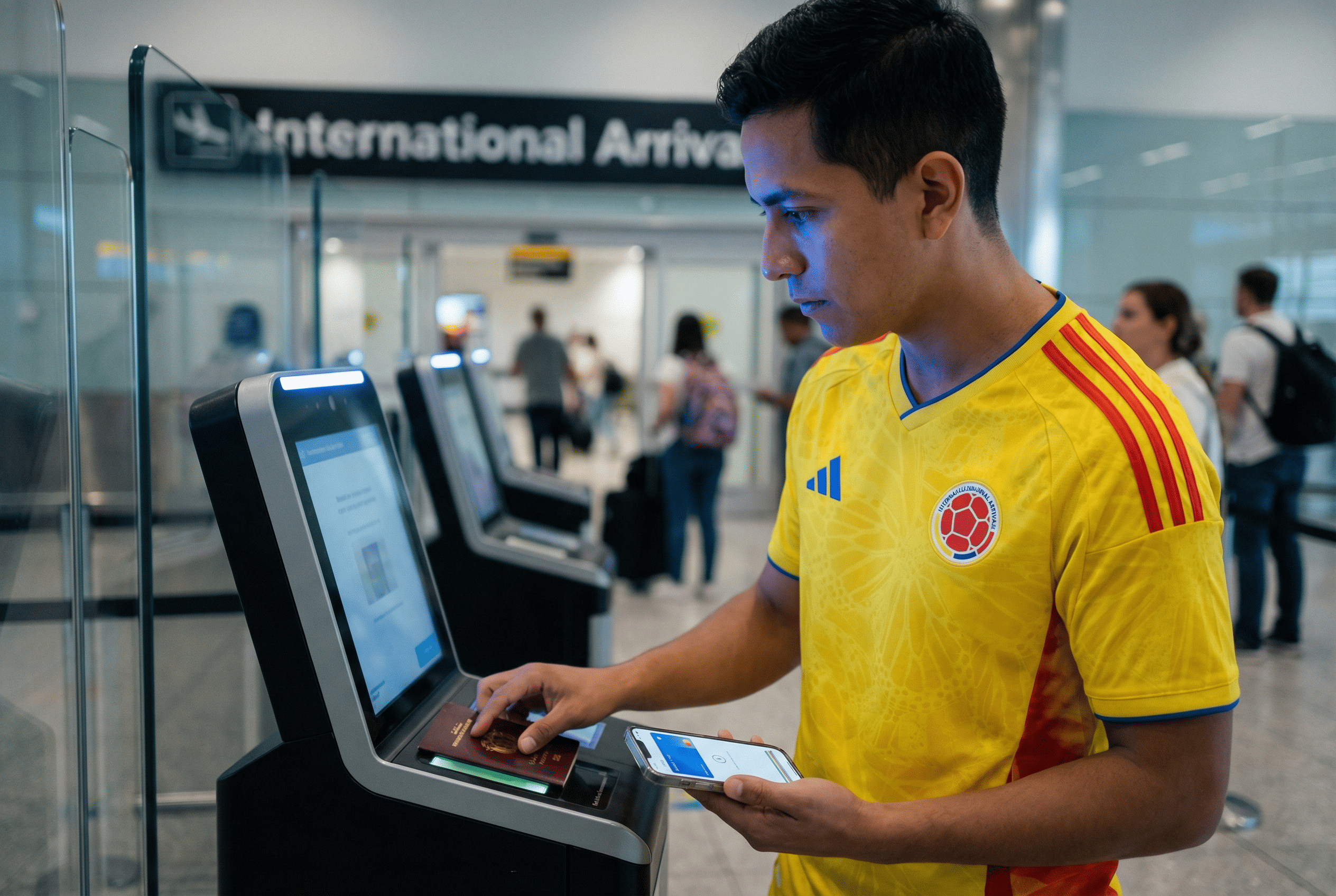What Are Corporate Travel Incentives and Why Are They Important?

Corporate travel incentives are reward programs where companies sponsor travel experiences for their employees or clients as a motivational or recognition tool. These programs are designed to foster loyalty, improve morale, and drive performance, making them a crucial aspect of many corporate strategies.
While cash bonuses and other rewards are common, travel incentives provide unique experiences that foster deeper connections and long-lasting memories. A study from the Society for Incentive Travel Excellence(SITE) highlights that employees value experiences over monetary rewards, often leading to greater satisfaction and retention. For instance, research by the Incentive Research Foundation (IRF) showed that companies implementing travel rewards see an average 15-20% increase in employee performance.
Corporate travel incentives are reward programs where companies sponsor travel experiences for their employees or clients as a motivational or recognition tool.

These programs are designed to foster loyalty, improve morale, and drive performance, making them a crucial aspect of many corporate strategies.
While cash bonuses and other rewards are common, travel incentives provide unique experiences that foster deeper connections and long-lasting memories. A study from the Society for Incentive Travel Excellence(SITE) highlights that employees value experiences over monetary rewards, often leading to greater satisfaction and retention.
Introduction to Corporate Travel Incentives
Corporate travel incentives refer to trips or experiences provided by businesses to motivate employees or reward high performance. These programs differ significantly from cash rewards, offering immersive and memorable experiences that leave a lasting impact on the participants.
As companies continue to focus on building a strong and engaged workforce, the importance of travel incentives has grown. Studies reveal that organizations with robust travel reward programs see improved team morale, better collaboration, and enhanced employee satisfaction.
The Value of Corporate Travel Incentives
Benefits for Companies
Corporate travel incentives deliver measurable value by:
- Boosting employee productivity.
- Enhancing team cohesion and loyalty.
- Building stronger relationships between employees and management.
Benefits for Employees
Employees benefit from travel incentives through:
- Recognition of their efforts.
- Opportunities for personal and professional growth.
- Experiences that balance work and leisure, creating positive associations with their workplace.
According to a SITE study, companies that invested in incentive travel programs reported up to a 22% increase in overall performance and engagement.
Real-World Example: Amazon’s Travel Program
Amazon has effectively utilized corporate travel incentives to reward high-performing employees. One notable example includes their “Pinnacle Trip” program, where top sales achievers are rewarded with luxury trips to exclusive destinations like Hawaii or the Amalfi Coast. These trips not only motivate employees but also foster a sense of community among top performers.
Benefits for Companies
Corporate travel incentives deliver measurable value by:
- Boosting employee productivity.
- Enhancing team cohesion and loyalty.
- Building stronger relationships between employees and management.
Benefits for Employees
Employees benefit from travel incentives through:
- Recognition of their efforts.
- Opportunities for personal and professional growth.
- Experiences that balance work and leisure, creating positive associations with their workplace.
According to a SITE study, companies that invested in incentive travel programs reported up to a 22% increase in overall performance and engagement.
Current Trends in Corporate Travel Incentives
The corporate travel incentive industry is evolving to meet new workforce preferences and societal demands. Notable trends include:
- Experiential Travel: Focus on activities like cultural tours, adventure sports, and culinary experiences.
- Sustainability: Eco-friendly trips and green accommodations are becoming a priority.
- Personalization: Programs tailored to employee interests and preferences.
Market Statistics
The global incentive travel market is projected to reach $216 billion by 2025, showcasing its growing significance in the corporate world (Incentive Research Foundation).
How to Design an Effective Corporate Travel Incentive Program
Creating a successful travel incentive program requires meticulous planning:
- Understanding Goals: Identify what the company wants to achieve, such as boosting sales or rewarding loyalty.
- Employee Preferences: Conduct surveys or discussions to understand what motivates the workforce.
- Setting Measurable Objectives: Establish KPIs, such as increased productivity or higher retention rates.
- Choosing Destinations: Popular locations include tropical islands, cultural hubs, and adventure destinations.
Example: Google’s Travel Incentive Program
Google’s travel incentives have set benchmarks for others in the industry. By rewarding high-performing teams with exotic trips, they have seen significant boosts in team morale and innovation.
Measuring the ROI of Corporate Travel Incentives
To gauge the effectiveness of travel incentives, companies should focus on these metrics:
- Increased sales and productivity.
- Enhanced employee retention rates.
- Improved employee engagement scores.

Harvard Business Review states that companies investing in travel incentives can achieve an ROI of up to 5:1, demonstrating their effectiveness in achieving business goals.
Common Challenges in Corporate Travel Incentive Programs
Despite their benefits, travel incentive programs come with challenges:
- Budget Constraints: Ensuring the program aligns with financial goals.
- Inclusivity vs. Exclusivity: Balancing fairness while rewarding top performers.
- Logistical Hurdles: Managing travel arrangements, itineraries, and compliance.
- Ethical Concerns: Addressing the environmental and social impact of travel.
Success Stories from the Industry
Case Study: Oxnor Corporation
Oxnor Corporation implemented a travel incentive program that rewarded top sales performers with an all-expenses-paid trip to Bali. The result? A 25% increase in sales and a significant improvement in employee satisfaction scores.
Expert Quotes
"Incentive travel programs create a unique bond between the employer and employees, driving long-term loyalty and engagement." –Society for Incentive Travel Excellence (SITE)
Emerging Technologies and Tools for Travel Incentives
The integration of technology has transformed the planning and execution of travel incentive programs:
- AI and Analytics: Personalizing trips based on employee preferences.
- Virtual and Hybrid Options: Providing alternatives for teams unable to travel.
- Digital Platforms: Streamlining program management and communication.
Incorporating Sustainability in Travel Incentives
As sustainability becomes a global priority, incorporating green practices in travel incentives is essential:
- Partnering with eco-friendly hotels and venues.
- Offering low-carbon travel options.
- Including environmental conservation activities in itineraries.
Case Study: Patagonia’s Sustainable Travel Program
Patagonia has successfully implemented sustainable corporate travel initiatives by focusing on eco-tourism and conservation projects. Their programs involve employee participation in reforestation efforts and partnerships with local communities to ensure minimal environmental impact. (Read more)
As sustainability becomes a global priority, incorporating green practices in travel incentives is essential:
- Partnering with eco-friendly hotels and venues.
- Offering low-carbon travel options.
- Including environmental conservation activities in itineraries.
The Future of Corporate Travel Incentives
The incentive travel industry is poised for significant growth:
- Rising demand for experiential and sustainable travel.
- Increased influence of Gen Z and Millennials on corporate travel trends.
- Advancements in technology driving personalized and immersive travel experiences.
Building a Corporate Culture Around Incentive Travel
Incentive travel can play a pivotal role in shaping company culture:
- Showcasing a commitment to employee well-being.
- Strengthening team bonds through shared experiences.
- Reinforcing the company’s identity as an employer of choice.
FAQs About Corporate Travel Incentives
- What are the best destinations for corporate travel incentives? Popular destinations include Bali, Paris, and New Zealand, known for their diverse offerings and unique experiences.
- How can small businesses implement travel incentives? Start with regional destinations and scale up as the company grows.
- Are travel incentives tax-deductible for companies? In many regions, they qualify as business expenses, but consult local tax laws.
- What industries benefit most from corporate travel incentives? Sales, IT, and creative industries often see the greatest impact from travel programs.
- How can I measure the success of a travel incentive program? Use metrics like employee engagement scores, sales growth, and retention rates.


.png)

.png)
.png)

